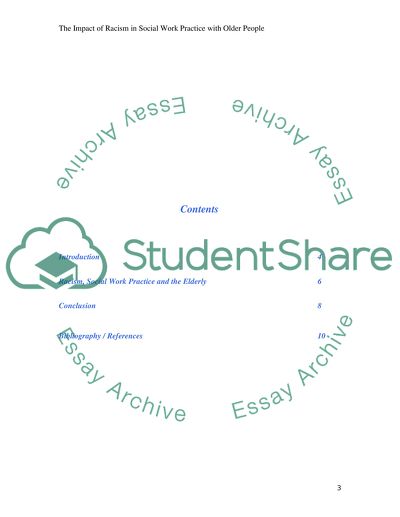Cite this document
(The Impact of Racism on Social Work Practice with Older People Coursework, n.d.)
The Impact of Racism on Social Work Practice with Older People Coursework. https://studentshare.org/sociology/1535415-social-work
The Impact of Racism on Social Work Practice with Older People Coursework. https://studentshare.org/sociology/1535415-social-work
(The Impact of Racism on Social Work Practice With Older People Coursework)
The Impact of Racism on Social Work Practice With Older People Coursework. https://studentshare.org/sociology/1535415-social-work.
The Impact of Racism on Social Work Practice With Older People Coursework. https://studentshare.org/sociology/1535415-social-work.
“The Impact of Racism on Social Work Practice With Older People Coursework”. https://studentshare.org/sociology/1535415-social-work.


